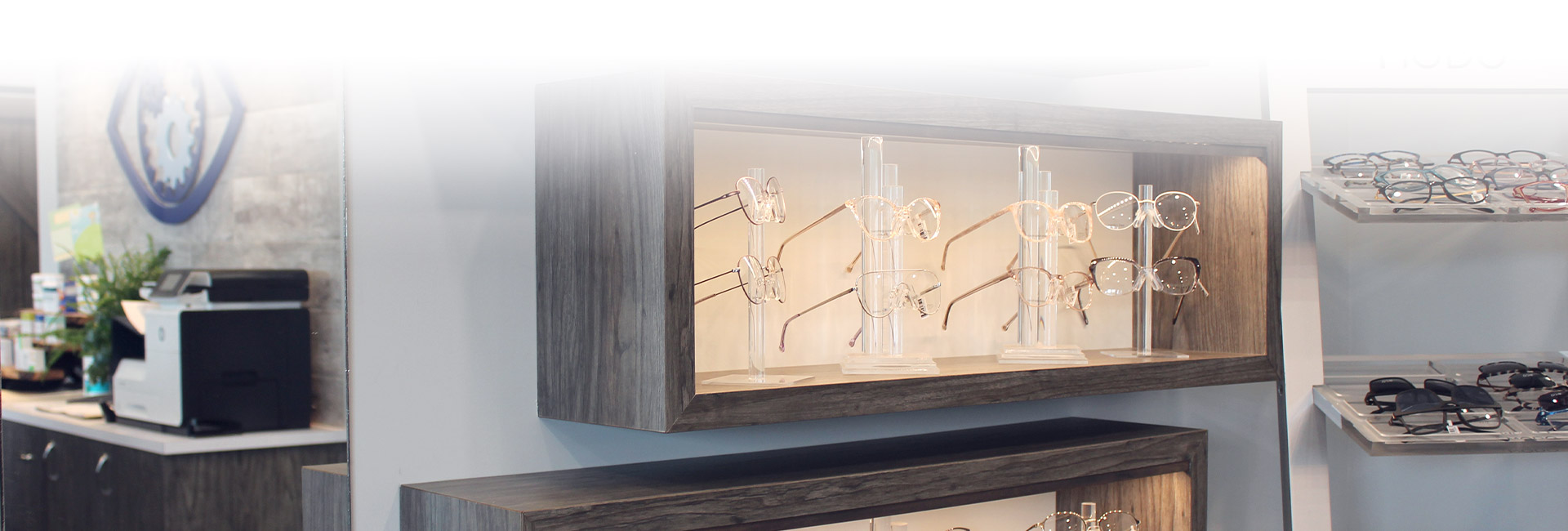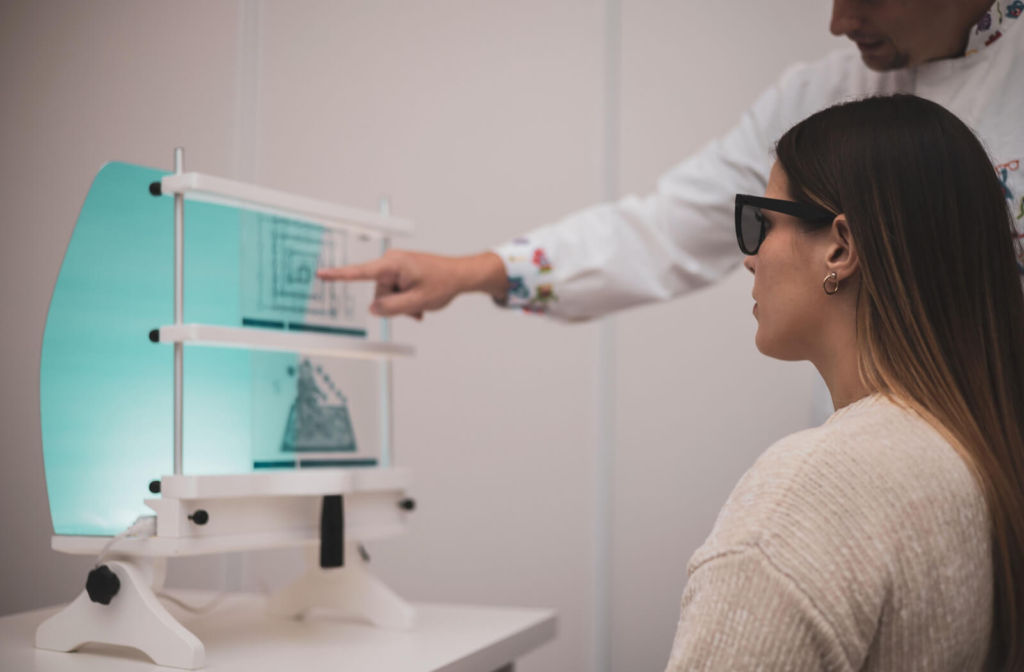Vision therapy is an optometric specialty that focuses on treating vision-related conditions and disorders. It involves a series of exercises designed to improve visual skills, eye coordination, focusing abilities, and depth perception.
Vision therapy can be used to treat a variety of vision problems, such as:
- Lazy eye (amblyopia)
- Strabismus (crossed eyes)
- Binocular vision dysfunction
- Concussion and neuro-visual dysfunctions
- Learning-related vision issues
- Visual processing issues
How Does Vision Therapy Work?
Vision therapy is a treatment that helps improve how you look at things. It uses exercises to help your eyes work better together to help you see more efficiently. Examples of some of the techniques are:
- Tracking objects with the eyes
- Using specialized instruments to do 3D activities
- Using Red/Green glasses to promote eye teamwork
- Doing activities that require sustained concentration on objects at varying distances (to improve focusing abilities)
- Using specialized prism glasses (to stimulate better coordination between both eyes)
- Doing activities that challenge the way visual information is processed (letter reversals, body awareness, etc)
An optometrist or certified vision therapist monitors your progression, helping you learn how to use your eyes together better.
What Eye Conditions Can Vision Therapy Treat?
Treating Visual Processing Disorder
Visual processing issues can arise when there are difficulties interpreting what is seen, even though it appears clear.
To treat this condition, optometrists or certified vision therapists design visual exercise programs that can improve visual skills such as discrimination, figure-ground, visual-spatial reasoning, letter/number reversals, and more.
Lenses may also be prescribed in addition to these exercises to help improve the clarity of vision or maintain correct alignment between the eyes while performing tasks that require close concentration, such as reading or writing.
With proper care and monitoring, patients can learn how to interpret visual information in a way that helps their school and sports performance.
Treating Strabismus & Amblyopia
Vision therapy is a great option for treating strabismus and amblyopia. Strabismus is a condition in which one eye is not pointed in the same direction as the other (eye turn). This can lead to vision problems such as double vision, blurriness, poor depth perception, and difficulty focusing.
Amblyopia is a condition where one eye does not see well, even when wearing glasses. This usually occurs due to abnormal visual development during childhood. The brain will then favour the stronger eye, which can cause vision in the weaker eye to get worse.
Amblyopia can result in blurry vision, reduced depth perception, or decreased peripheral vision in that eye.
Vision therapy can be an effective treatment for strabismus and amblyopia because it involves activities designed to promote the brain’s ability to use the eyes together as a team.
Binocular Vision Dysfunction Treatment
Binocular vision issues can be debilitating and can affect a person’s daily life in many ways. Binocular vision refers to the brain’s ability to use both eyes together to process what is seen to better interpret and understand the visual world.
Common binocular vision issues include:
- Convergence insufficiency (CI)
- Accommodative disorders
- Oculomotor dysfunctions
We offer binocular vision assessments designed to detect underlying issues with how your eyes work together as a team. With our integrated approach combining modern technology and evidence-based treatments tailored specifically for you, we can work together to help you achieve clearer vision!
Brain Injuries & Neuro-Visual Rehabilitation Treatment
Brain injuries cause a variety of vision-related symptoms that can affect a patient’s overall quality of life, such as:
- Blurred or double vision
- Sensitivity to light and noise
- Difficulty concentrating and focusing on near objects
- Poor depth perception
- Feeling overwhelmed in crowded environments
Brain injury rehabilitation programs focus on improving visual skills, eye coordination, focusing abilities, and depth perception with carefully tailored exercises and activities monitored by an optometrist or certified vision therapist over several months.
This program aims to help patients recover from their brain injuries more quickly so they can go back to living life without vision-related issues getting in the way.
Beyond 20/20 Optometry’s neuro-visual rehabilitation program can help people suffering from brain injuries get back on their feet faster with improved visual skills and symptoms.

Get Started with Vision Therapy
If you’re experiencing a visual impairment such as strabismus, amblyopia, binocular vision dysfunction, oculomotor dysfunctions, reading difficulties, or visual processing issues—don’t wait. Book your appointment today at Beyond 20/20 Optometry for an eye exam and a vision therapy consultation, so our team of experts can help you see better faster.




